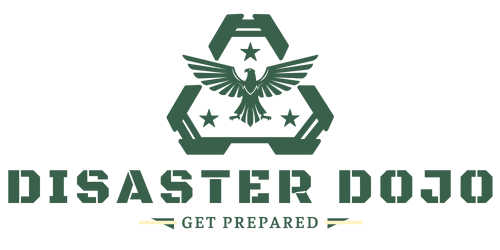Are you looking to build a prepper network or community but unsure of where to start? In a world filled with uncertainties, it’s becoming increasingly important to have a reliable support system in place for emergencies and disaster preparedness. Whether you’re a seasoned survivalist or a newbie prepper, building connections within a prepper network can provide invaluable resources, knowledge, and reassurance during challenging times. In this article, we will explore practical steps and strategies to help you develop a prepper network or community, where like-minded individuals can come together to share skills, ideas, and support.

Identifying the Need
Assessing the benefits of a prepper network
A prepper network can provide numerous benefits when it comes to preparing for and responding to emergencies. Firstly, having a network of like-minded individuals ensures that you are not alone in your preparations. By joining forces with others who share your mindset, you can leverage each other’s knowledge, skills, and resources. Additionally, a prepper network provides a sense of security and peace of mind, knowing that you have a support system in place should disaster strike. Together, you can face challenges and overcome obstacles that would be difficult to tackle on your own.
Understanding the purpose of a prepper community
The purpose of a prepper community is to foster collaboration, information-sharing, and a mutual sense of preparedness among its members. While individual preppers may have their own preparations in place, a community allows for a collective effort to ensure the safety and well-being of everyone involved. By working together towards a common goal, a prepper community can enhance the level of preparedness and response capabilities for everyone involved. Moreover, the community provides opportunities for networking, friendship, and emotional support during times of crisis.
Recognizing the advantages of collaboration
Collaboration within a prepper network or community brings numerous advantages to the table. By pooling together resources, such as food, water, tools, and medical supplies, the community can create a robust and diverse resource pool that can better withstand a variety of emergency situations. Furthermore, collaborating on preparedness projects and survival training exercises allows individuals to learn from each other and develop new skills. Additionally, in times of crisis, collaboration enables a quicker and more effective response, as tasks can be divided among members, ensuring that everyone can contribute their expertise for the benefit of the community as a whole.
Building Relationships
Connecting with like-minded individuals
To develop a prepper network or community, it is crucial to connect with like-minded individuals who share your interest in preparedness. This can be achieved through various means, such as online forums, social media groups, or attending local prepper events. Engage in conversations, share your knowledge and experiences, and express your desire to be part of a community. By connecting with individuals who have a similar mindset, you lay the foundation for building strong relationships and establishing a supportive network.
Engaging with local community members
Building a prepper community starts with engaging with the members of your local community. Begin by reaching out to your neighbors, friends, and acquaintances to gauge their interest in preparedness. Start conversations about the importance of being ready for emergencies and work towards creating a sense of community resilience. Encourage them to participate in training sessions or attend workshops on disaster preparedness. By involving local community members in the process, you can foster a stronger and more interconnected network of individuals ready to support each other during challenging times.
Attending prepper events and conventions
Attending prepper events and conventions is an excellent way to connect with a larger community of like-minded individuals. These events often feature workshops, seminars, and demonstrations on various aspects of preparedness. They provide valuable opportunities to learn from experts in the field, exchange ideas with fellow preppers, and expand your network. Take the time to engage with other attendees, participate in group activities, and exchange contact information. By immersing yourself in the prepper community through events and conventions, you can strengthen your connections and broaden your horizons.

Establishing Communication Channels
Creating online forums or social media groups
In this digital age, creating online forums or social media groups can be an effective way to establish communication channels within your prepper network or community. These platforms allow for easy and instant communication, information sharing, and collaboration. Set up a dedicated forum or group where members can discuss preparedness topics, ask questions, and share valuable resources. Ensure that the platform is secure and private, allowing for open and honest discussions while maintaining the confidentiality of personal information.
Utilizing communication apps and software
Besides online forums and social media groups, consider utilizing communication apps and software to enhance connectivity within your prepper network. There are numerous messaging apps, such as Slack or WhatsApp, that facilitate real-time communication and provide a platform for sharing information, updates, and coordinating efforts. Additionally, explore software specifically designed for emergency preparedness, which may offer features like incident management, resource tracking, and emergency alert systems. By utilizing these tools, you can establish efficient and reliable communication channels to keep everyone connected and informed.
Setting up regular meetings or drills
In addition to online communication, it is essential to establish regular face-to-face interactions within your prepper network. Set up regular meetings, either in person or through video conferencing, to create a sense of community and strengthen relationships. These meetings provide opportunities for members to share updates on their preparations, exchange ideas, ask questions, and discuss collective projects. Further, organize drills and simulation exercises to practice emergency response procedures as a group. Regular meetings and drills foster a sense of unity, trust, and preparedness within the network.
Sharing Knowledge and Skills
Identifying expertise within the network
One of the advantages of a prepper network is the diverse knowledge and skills that can be found within its members. Take the time to identify the areas of expertise within your network and acknowledge the unique contributions each person can make. Some may have medical training, others might excel in carpentry or gardening, while some may have a deep understanding of communications or alternative energy sources. By recognizing and utilizing these talents, you can tap into a wealth of knowledge and skills, enriching the overall preparedness of the community.
Organizing skill-sharing sessions
To foster a culture of knowledge-sharing within your prepper network, organize skill-sharing sessions where members can teach and learn from each other. Consider hosting workshops or training sessions on various topics, such as first aid, food preservation, self-defense, or off-grid cooking methods. Encourage members to share their expertise and provide hands-on demonstrations. By organizing these sessions, you empower individuals to expand their skill sets, learn new techniques, and become more self-reliant in various aspects of preparedness.
Offering training and workshops
To further enhance the preparedness level within your prepper community, consider offering training and workshops conducted by professionals and experts in relevant fields. Collaborate with local organizations, emergency management agencies, or first responders to provide training on disaster response, emergency medical techniques, or survival skills. These training opportunities not only develop essential skills but also create networking opportunities with external professionals who can provide valuable insights and resources. By investing in training and workshops, you ensure that your prepper community is well-equipped to handle a wide range of emergency scenarios.

Developing a Resource Pool
Pooling together essential supplies
A fundamental aspect of preparedness is having an adequate supply of essential items. Encourage members of your prepper network to pool together their resources to build a robust and diverse stockpile of supplies. This can include non-perishable food items, water, medical supplies, tools, batteries, and other essential items. By consolidating resources, you can ensure that individuals have access to a wider variety of supplies, increasing the overall resilience of the community.
Creating a communal storage system
To effectively manage the pooled resources, establish a communal storage system. Designate a secure location, such as a shared storage unit or a dedicated space within a member’s property, where the supplies can be stored. Develop an inventory management system to keep track of the items, ensuring that they are rotated and replenished to maintain freshness and usability. A communal storage system not only ensures the efficient organization of resources but also allows for easy access and distribution during times of need.
Establishing mutual aid agreements
Building a prepper community involves establishing mutual aid agreements among the members. These agreements outline the terms of cooperation, including how resources will be shared, responsibilities during an emergency, and protocols for communication and coordination. By formalizing these agreements, you create a framework that promotes fairness, transparency, and mutual support within the community. Establishing mutual aid agreements ensures that everyone understands their roles and responsibilities, therefore enhancing the overall effectiveness and efficiency of the prepper network.
Establishing Security Measures
Defining security protocols
As a prepper community, it is crucial to establish security protocols to protect both individuals and shared resources. This includes defining guidelines for access to communal storage areas, establishing procedures for verifying the identity of new members, and creating protocols for dealing with potential threats or breaches of security. By defining and communicating clear security protocols, you ensure that everyone is aware of the measures in place, fostering a sense of safety and trust within the community.
Implementing measures to protect the community
Implementing security measures goes beyond establishing protocols; it involves taking concrete actions to enhance the safety and protection of the prepper community. This may include installing security systems, setting up perimeter fences or barriers, and organizing security drills to practice response to potential threats. Evaluate the vulnerabilities of your community, identify potential risks, and implement appropriate measures to mitigate them. By prioritizing security, you create a safe and secure environment where members can focus on preparedness and collaboration.
Developing an emergency response plan
A robust emergency response plan is vital for any prepper community. Collaboratively develop a comprehensive plan that outlines procedures for different types of emergencies, such as natural disasters, pandemics, or social unrest. This plan should include a chain of command, communication protocols, evacuation procedures, resource allocation strategies, and protocols for assisting vulnerable members of the community. Regularly review and update the plan to ensure its relevance and effectiveness as circumstances change. By having a well-crafted emergency response plan, the prepper community can respond quickly, efficiently, and cohesively during times of crisis.
Collaborating on Preparedness Projects
Initiating group projects for shared readiness
Collaboration within a prepper community can be fostered through initiating group projects for shared readiness. Identify areas where collective efforts can enhance preparedness, such as constructing communal shelters, developing off-grid energy solutions, or establishing sustainable food production systems. By working together on these projects, members can leverage their skills and resources, collectively tackling complex tasks that would be difficult to accomplish individually. Group projects foster teamwork, shared ownership, and a sense of accomplishment as each milestone is achieved.
Working together on survival training exercises
Survival training exercises provide an excellent opportunity for prepper network members to come together and practice their skills in a realistic scenario. Organize survival training exercises, such as wilderness survival weekends or simulated disaster response drills, where the community can work together to overcome challenges and simulate emergency situations. These exercises not only reinforce individual skills but also build cohesion, trust, and effective communication within the group. By collaborating on survival training exercises, the prepper community becomes better prepared to face real-life emergencies.
Coordinating disaster response efforts
In times of disaster, effective coordination and collaboration are critical. By establishing a prepper network or community, you have already laid the foundation for coordinated disaster response efforts. Regularly communicate and update each other on your preparations, ensuring that everyone is aware of the available resources, skills, and capabilities within the network. When disaster strikes, coordinate efforts to ensure that resources are optimally deployed, tasks are assigned to the most suitable individuals, and communication channels remain open. By collaborating on disaster response efforts, your prepper community can effectively respond to emergencies and minimize the impact on its members.
Promoting Mutual Support
Creating a culture of collaboration
To promote mutual support within your prepper network, it is crucial to create a culture of collaboration. Encourage members to actively contribute their knowledge, skills, and resources, fostering an environment where individuals feel valued and heard. Promote open and respectful communication, prioritize teamwork, and celebrate collective achievements. By cultivating a culture of collaboration, trust, and partnership, you create a strong and united prepper community that can face challenges together.
Supporting members in times of need
In times of crisis or personal emergencies, it is essential for a prepper community to rally around and support its members. Develop systems and protocols to ensure that individuals have access to the help they need when facing challenges. This can include providing emotional support, assisting with practical tasks, or temporarily accommodating members who have been displaced. By actively supporting each other during times of need, the prepper community reinforces the notion of collective responsibility and strengthens the bonds among its members.
Implementing a buddy system
Implementing a buddy system within your prepper network can further enhance mutual support and increase individual safety. Encourage members to pair up with a designated buddy who can provide additional assistance and support during emergencies. Buddies can check in with each other regularly, share information, and assist in case of incapacitation or communication breakdowns. The buddy system ensures that no one is left without support or assistance when disaster strikes, instilling a sense of trust and camaraderie within the prepper community.
Engaging in Community Outreach
Sharing prepper knowledge with neighbors and friends
One of the goals of a prepper community is to promote preparedness on a broader scale. Engage in community outreach by sharing your prepper knowledge and experiences with your neighbors and friends. Be approachable, answer questions, and provide guidance on how they can become better prepared. By promoting preparedness within your immediate community, you can create a ripple effect, inspiring others to take action and potentially expanding your prepper network.
Organizing workshops and seminars for the local community
To further engage with the local community and promote preparedness, consider organizing workshops and seminars on relevant topics. Utilize your network’s collective expertise to offer training on first aid, emergency communication, self-defense, or even home gardening. Reach out to local community centers, schools, or homeowners’ associations to host these events. By providing valuable knowledge and practical skills to your community, you establish yourself and your prepper community as a valuable resource during times of need.
Participating in local disaster preparedness activities
Get involved in local disaster preparedness activities to connect with other organizations and individuals who share similar goals. Volunteer with emergency management agencies, participate in community drills, or join local search and rescue teams. By actively engaging in local disaster preparedness activities, you not only broaden your network but also contribute to the overall resilience and preparedness of the community. Remember, community preparedness is a collective effort and can be strengthened through collaboration and participation.
Maintaining a Strong Network
Regularly communicating and checking in with network members
To maintain a strong prepper network, it is essential to prioritize regular communication and check-ins with network members. Establish communication routines, such as weekly updates or monthly meetings, where everyone can provide updates on their preparations, discuss challenges, and share valuable information. Encourage open and transparent communication to ensure that everyone remains connected and informed. Additionally, organize periodic check-ins to ensure that individual needs are met, and support is readily available within the network.
Evaluating and updating emergency plans
Emergency situations are dynamic, and preparedness plans must evolve accordingly. Regularly evaluate and update your emergency plans to ensure they remain relevant and effective. Review new information, assess changes in the threat landscape, and collaborate with members to identify areas for improvement. By continuously evaluating and updating emergency plans, you demonstrate a commitment to maintaining the highest level of preparedness within your prepper network.
Continuously expanding and recruiting new members
To ensure the longevity and growth of your prepper network, it is crucial to continuously expand and recruit new members. Actively seek out individuals who share your mindset and values, and invite them to join your network. Engage with neighboring communities, attend local events, and utilize online platforms to connect with potential members. Remember, a diverse network brings a wide range of skills, expertise, and resources to the table, making your prepper community even stronger and more resilient.
In conclusion, developing a prepper network or community involves various essential steps, including assessing the benefits, building relationships, establishing communication channels, sharing knowledge and skills, developing a resource pool, establishing security measures, collaborating on preparedness projects, promoting mutual support, engaging in community outreach, and maintaining a strong network. By following these steps and fostering a culture of collaboration and support, you can create a prepper community that is well-prepared, resilient, and ready to face any challenge that may come your way. Remember, together we are stronger, and by working together, we can ensure the safety and well-being of our communities. So, start building your prepper network today and empower yourself and those around you to be prepared for whatever the future may hold.


